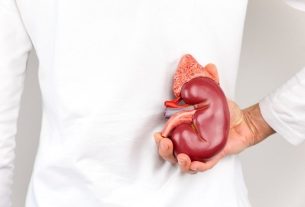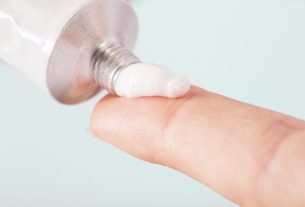Home remedies for labyrinthitis such as tea Ginkgo biloba or ginger tea, contain substances with anti-inflammatory and antiemetic action, which help to alleviate the symptoms of labyrinthitis, mainly dizziness, loss of balance and nausea.
Labyrinthitis is an inflammation of the ear that affects the labyrinth, a region responsible for hearing and balance, and can be caused by natural aging or other factors such as excessive tiredness, excess stress or alcohol abuse, and can appear several times throughout of life, making day-to-day activities difficult. Know how to identify the symptoms of labyrinthitis.
Although they do not serve to replace the treatment recommended by your doctor, home remedies can help to alleviate the symptoms of labyrinthitis more quickly or prevent the frequent occurrence of attacks.

1. Ginkgo biloba tea
The tea Ginkgo biloba It can be used to combat dizziness or loss of balance caused by labyrinthitis, as this plant improves blood circulation inside the ear, also helping to combat tinnitus.
This tea can be taken daily, but it is mainly recommended during periods of greater stress or when labyrinthitis attacks are more frequent.
Ingredients
- 1 tablespoon of dried leaves of Ginkgo biloba;
- 1 cup of water.
Preparation mode
Boil dry leaves of Ginkgo biloba with water for 1 minute. Let it rest for 5 minutes and drink 3 to 4 cups a day.
The tea Ginkgo biloba It should not be used by children under 12 years of age, pregnant or breastfeeding women or by people at high risk of bleeding or with any active bleeding.
2. Ginger tea
Ginger tea contains gingerol, chogaol and zingerone, which are substances with anti-inflammatory and antiemetic properties, which help to relieve ear inflammation, reducing the symptoms of nausea and vomiting caused by labyrinthitis. Discover other benefits of ginger.
Ingredients
- 1 cm of ginger root, cut into slices or grated;
- 1 liter of water.
Preparation mode
Bring the water to a boil along with the ginger and let it boil for 5 to 10 minutes. Strain and drink the tea in 3 to 4 divided doses throughout the day.
Another option for making tea is to replace the root with 1 teaspoon of powdered ginger.
This tea should be avoided by people with active stomach bleeding, due to an ulcer, for example, or by people who are using anticoagulant medications, as ginger has anticoagulant properties that can cause or increase the risk of bleeding and hemorrhage.
Furthermore, during pregnancy, ginger should only be used in an amount of 1 g per day and for a maximum of 4 days.
3. Rosemary tea
Rosemary tea, prepared with the medicinal plant Rosemary officinalisis rich in substances such as rosmarinic acid, carnosic acid and essential oils, with anti-inflammatory, antioxidant and neuroprotective properties, which help to alleviate dizziness caused by labyrinthitis.
Ingredients
- 1 teaspoon of fresh rosemary leaves;
- 250 mL of boiling water.
Preparation mode
Add the rosemary leaves to the boiling water, cover and let it rest for 5 to 10 minutes. Strain, let cool and drink 3 to 4 times a day.
Rosemary tea should not be consumed by children under 5 years of age, pregnant or breastfeeding women, or by people who have liver disease, as this tea can worsen symptoms and the disease.
Furthermore, rosemary tea may interact with some medications, such as anticoagulants, diuretics, lithium and medications for diabetes or to regulate blood pressure, and therefore, if you are using any of these medications, it is important to consult your doctor beforehand. to drink tea.
4. Lavender tea
Lavender tea, also known as lavender, has substances with calming and relaxing effects, which reduce anxiety that can worsen dizziness from labyrinthitis.
Furthermore, this tea reduces stress and improves sleep quality, which are often factors that contribute to the development of labyrinthitis.
Ingredients
- ½ teaspoon of lavender flowers;
- 1 cup of boiling water.
Preparation Mode
Add the lavender flowers to the boiling water and let it rest for 10 minutes. Strain and drink 1 cup a day, before bed.
Lavender tea should not be taken by pregnant women or people with stomach ulcers or who are allergic to lavender essential oil.
5. Garlic and olive oil compress
The garlic and olive oil compress has antioxidant and anti-inflammatory properties due to allicin, present in garlic, which helps reduce ear inflammation and combat the symptoms of labyrinthitis, ringing in the ear, dizziness or loss of balance.
Additionally, olive oil helps lubricate the ear and reduce discomfort from inflammation.
Ingredients
- 1 clove of garlic;
- 1 drizzle of olive oil.
Preparation mode
In a tablespoon, add 1 clove of crushed garlic and a drizzle of olive oil and heat until warm. When it is already warm, dip a piece of cotton in olive oil, squeeze it to remove the excess and place it in the ear, covering the ear. Leave this remedy to act for about 20 minutes. Repeat the procedure 3 times a day.

Sign up for our newsletter and stay up to date with exclusive news
that can transform your routine!
Warning: Undefined array key "title" in /home/storelat/public_html/wp-content/plugins/link-whisper-premium/templates/frontend/related-posts.php on line 12
Warning: Undefined array key "title_tag" in /home/storelat/public_html/wp-content/plugins/link-whisper-premium/templates/frontend/related-posts.php on line 13



